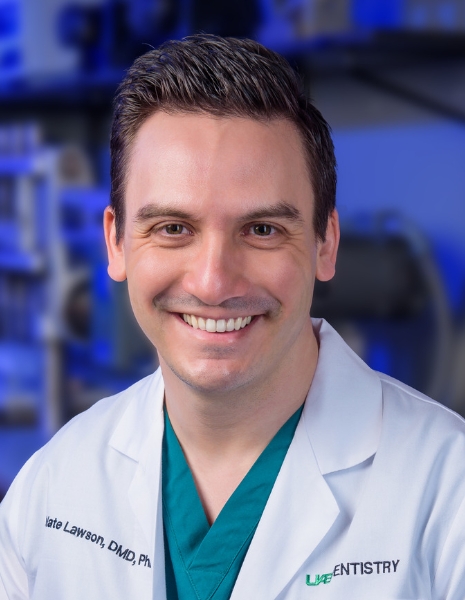Dentistry has not always been the straightforward practice that we know today. Many years ago, it was seen as rudimentary and sometimes downright painful. Nowadays, rapid innovations in the field allow for state-of-the-art diagnostics and care that put patients’ comfort at the forefront.
 Nate Lawson, D.M.D, M.A., Ph.D., associate professor and Director of Division of Biomaterial at University of Alabama at Birmingham’s School of Dentistry provides some insight into the world of modern dentistry.
Nate Lawson, D.M.D, M.A., Ph.D., associate professor and Director of Division of Biomaterial at University of Alabama at Birmingham’s School of Dentistry provides some insight into the world of modern dentistry.
Lawson says that there are three things that everyone should know about dentistry:
Dentistry has gone digital.
We know you don't like that "goo" we use to take impression - neither do we. With improvements in 3D-scanning technology, we are eliminating the need to take impressions with the gooey materials we used in the past. Digital impressions are more accurate and usually faster. Not to mention that patients really seem to prefer them. They use light and cameras to take the images, just like your smartphone, so there is no harm to your body when taking these scans. And these 3D scanners have many advantages such as allowing digital planning for more complex treatment, fast communication with labs who make crowns and other dental appliances, and digital storage of the files in case future revisions are needed.
Dentistry has become less invasive.
There have been many advances in dentistry over the past 10 to 20 years that allow dentists to better serve our patients and prolong the lifetime of their teeth. Some of these include improvements in bonding which allow dentists to remove less of your tooth when fixing cavities or broken teeth. Many teeth can now be saved with bonded fillings or ceramic restorations. For deep cavities, we have treatments that help to heal your nerve to avoid root canals in some cases. Advancements in materials for a procedure called "pulp capping" have improved success rates for this treatment. And the extensive use of dental implants has been able to give patients treatment options for missing teeth that are either more toot-preserving than traditional bridges and more functional than traditional dentures and partial dentures.
Dentistry has become even more preventative.
The role of the dentist is to keep you healthy and out of our chairs as much as possible. Regular visits to the dentist and hygienist are designed to catch warning signs to help recommend preventive and minimally invasive treatments before larger problems occur. For example, many small cavities can be reversed with improvements in diet, hygiene, and high strength fluoride products. Tooth wear can be a destructive habit which can be addressed with a nightguard. And gum disease is a condition that affects many adults that leads to eventual tooth mobility and loss - which can be treated with professional cleanings and home hygiene instructions.
Lawson, who also serves in UAB Dental Group, wants patients to know that regular dental visits are important for your overall health.
“Several systemic conditions have been linked to oral health,” he said. “An oral cancer screening is an important part of every dental oral examination.”
_____________________________________________________________________________________________________________________________
UAB Dental Group is a multidisciplinary faculty practice featuring UAB dentists and specialists who provide care in a private practice setting. The practice provides all levels of general dentistry including routine cleaning, fillings, crowns and bridges, minor oral surgery, periodontal therapy, soft tissue diagnosis and treatment, complete dentures, and partial dentures. They also offer dental care in the specialty areas of Prosthodontics, Periodontics, and Orthodontics. The clinic is a preferred provider organization for Blue Cross and Blue Shield of Alabama and MetLife group plans, as well as other insurance providers. For details and to make an appointment today, call (205) 934-2340.